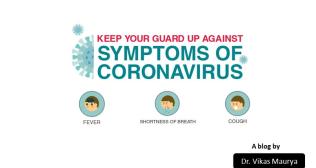
Can you live a normal life with asthma?
Asthma is a chronic condition that affects the airways, making it difficult to breathe. But, having asthma doesn't mean you can't live a full and active life. With the right management and understanding, you can effectively control your symptoms and prevent asthma attacks. Asthma symptoms usually vary between wheezing, coughing, shortness of breath, and chest tightness.
Asthma is said to be under control when it does not interfere with everyday life and prevent normal activities. You should be able to sleep through the night without symptoms, have few or no daytime symptoms, exercise, and complete your daily routines without using reliever medication or using it on a minimal basis.
The key to living a normal life with asthma involves working closely with your pulmonologist to develop a personalized asthma action plan. Your action plan should include:
- A regular controller medication to prevent asthma symptoms and reduce inflammation in the airways.
- A quick relief rescue medication, that can be used as needed to quickly relieve asthma symptoms during an attack
- Asthma triggers, every asthma patient needs to identify their asthma triggers to prevent frequent exacerbations. Some common triggers include allergens like pollen, dust mites, pet dander, smoke, pollution, exercise, cold air, and respiratory infections.
- Monitoring of symptoms and keeping track of peak flow readings and any changes in your condition
- Regular physical activity is important for overall health. With proper asthma management, most people can exercise
- Maintain a healthy weight, as obesity can worsen asthma symptoms
- Be aware of early warning signs of an asthma attack and how to respond
- Consider using air purifiers with HEPA filters to reduce airborne allergens
- Use your inhaler as needed and take precautions during high pollution or pollen days.
Living with asthma doesn't mean you have to live in fear. Living a healthy lifestyle like regular exercise, eating a healthy diet rich in fruits, vegetables, whole grains, and lean protein, getting enough sleep of atleast 7 hours every night, avoiding asthma triggers, and managing stress using healthy ways like deep breathing exercises, meditation, yoga, or spending time with loved ones.
Avoidance of smoking can play a major role in good control and maintenance of lung functions. Also, patients should be cautious with over-the-counter (OTC) medications likely NSAIDS/beta blockers, and taking annual flu vaccinations on time are some other steps to prevent frequent exacerbations and have a better control of asthma symptoms.
Finally, it's essential to stay informed about your condition. Learn as much as you can about asthma, and don't be afraid to ask questions. The more you know, the better equipped you'll be to manage exacerbations effectively.
Therefore, by identifying and avoiding triggers, and making healthy lifestyle choices, one can effectively control asthma symptoms and prevent asthma attacks, allowing one to live life to the fullest.
Categories
Clear allMeet the doctor

- Pulmonology | Pulmonology | Sleep Medicine | Pulmonology and Critical care
-
10 Years
-
1200



















